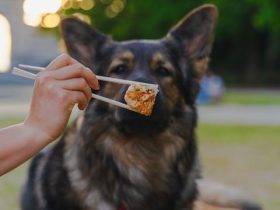Purchasing Pet food
Purchasing Pet Food that is suitable for your pet newbie proprietor is challenging given the huge varieties of food that exist in the market. Selecting the right pet food is crucial for the health and well-being of your furry friend. With numerous options available in the market, it’s important to make an informed decision. This content will outline the key factors to consider when purchasing pet food, ensuring you provide your beloved companion with a nutritious and balanced diet.
Understand Your Pet’s Nutritional Needs:
Different pets have varying nutritional requirements. Consider your pet’s age, breed, size, activity level, and any specific health concerns. Puppies and kittens, for instance, require food that supports their growth, while older pets may benefit from specialized formulas. Consult with your veterinarian to determine the appropriate pet diet for your pet’s individual needs.
The age of the pet dog is vital in purchasing pet food
Depending upon the phase of your pet dog’s life, you require to be able to determine the best kind of food.
Wellness
It is crucial that you take your pet dogs for normal appointments to ensure that you have a close tab of the health and wellness background. Just with normal appointments would certainly you have the ability to determine if the pet dog dislikes any kind of food components or if he/she has a clinical problem that requires to be dealt with. The clinical problem additionally could need you to stay clear of specific sort of pet dog food.
Body of the dog is vital when purchasing pet food
An animal that is obese will absolutely require to be fed with food that has various sort of nourishment when contrasted to the typical food.
When purchasing pet food Read the Ingredient List:
The ingredient list on pet food packaging provides valuable information about the product’s quality. Look for real, whole-food ingredients like meat, fish, and vegetables. Avoid products that contain artificial additives, preservatives, and fillers. Ideally, the first few ingredients should be high-quality protein sources. Remember, pets are primarily carnivores, so a diet rich in animal protein is essential.
Consider Specific Dietary Requirements in purchasing pet food:
If your pet has any allergies or sensitivities, you must choose a diet that accommodates those needs. Common allergens include grains (wheat, corn, soy) and certain proteins (chicken, beef). Opt for limited ingredient or hypoallergenic formulas designed to address food sensitivities. Additionally, if your pet has any underlying health conditions, such as diabetes or kidney disease, consult your vet for dietary recommendations.
Assess the Food’s Quality and Safety:
Look for pet food brands that prioritize quality and safety. Check if the manufacturer conducts rigorous testing and adheres to industry standards. Choose brands that follow the guidelines set by reputable organizations, such as the Association of American Feed Control Officials (AAFCO). Additionally, consider whether the brand has a history of recalls or negative reviews. Trusted brands with a good track record are more likely to provide reliable and safe products.
Consider the Feeding Guidelines:
Feeding guidelines provided by the manufacturer can give you an idea of the recommended portion sizes for your pet. Overfeeding can lead to obesity, while underfeeding can result in nutrient deficiencies. However, it’s important to remember that these guidelines are just starting points. Factors such as metabolism, activity level, and individual needs may require adjustments. Regularly monitor your pet’s weight and consult your veterinarian for personalized feeding recommendations.
Evaluate the Packaging and Storage:
Proper packaging is vital to preserve the freshness and quality of pet food. Look for products with airtight packaging or resealable bags to keep the food fresh for longer. Consider the storage requirements as well. Some pet foods may need refrigeration or specific storage conditions to maintain their nutritional value. Follow the instructions on the packaging to ensure your pet’s food stays fresh and safe.
Sorts and also disapproval
It is additionally crucial to take into consideration the sort and also disapproval of the pet dog when it pertains to feeding them. Similar to individuals pets additionally would certainly have their choices in preference.
The components
Looking for the components utilized in the pet dog food will absolutely assist. For instance a feline would certainly need food that is abundant in healthy proteins, minerals and also vitamins. You need to see to it that the pet dog food you acquire has all these dietary components.
Conclusion:
Choosing the right pet food involves careful consideration of your pet’s unique needs, quality of ingredients, and safety standards. By understanding your pet’s nutritional requirements and considering these essential factors, you can make an informed decision and provide your furry companion with a healthy and nourishing diet. Remember, consult with your veterinarian for personalized recommendations based on your pet’s specific needs.
.






Leave a Reply